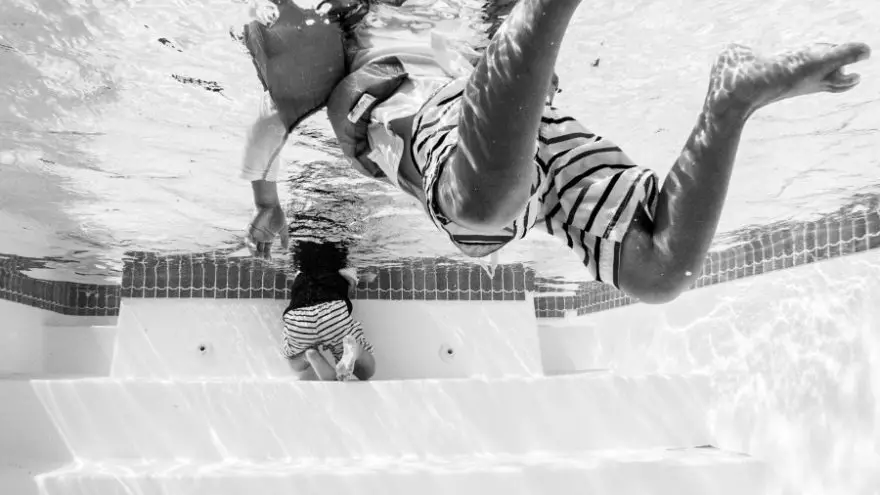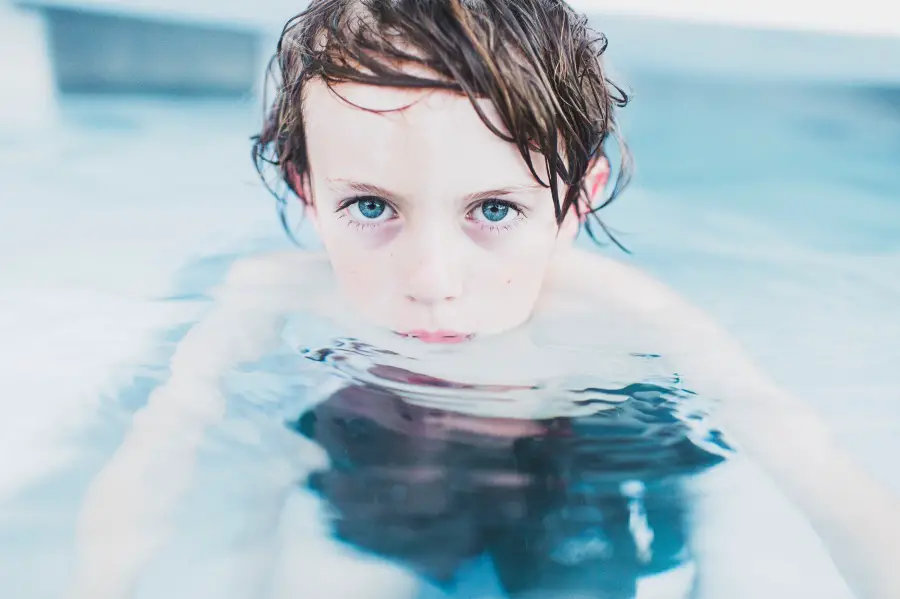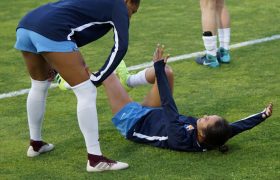5 Essential Pool Safety Tips for Kids

Parents all love summertime and with warmer weather comes picnics, camping, and swimming. Children between the ages of 2 and 5 years of age are more likely to have an accident in the water. It’s especially important to watch the kids between those ages and also the 3 and 4-year-olds are more impulsive, so parents don’t want to experience a traumatic disaster. It’s important to start your children in swimming lessons as soon as possible and if they are not very adept at swimming, make sure they are wearing a child’s life jacket that fits correctly and holds them up in the water. Make sure you never leave any of your children unattended. Adults can drown just as fast if they have had too much to drink and don’t know that some of these lakes have huge drop-offs and lots of seaweed to get tangled in. If you are swimming near an ocean, pay attention to the warnings because riptides can start out of nowhere. A storm can move in very quickly and as far as riptides are concerned, people can get sucked out into the deep water even if they are standing in the water around their ankles. The waves are so powerful, that they knock a person down with brutal force and drag them out to sea.
Warmer weather has arrived and many families either go to beaches or pools. This is the best way to deal with the heat on a hot summer day. Swimming is great fun and good for exercise, however; it’s also a dangerous place for terrible situations to occur. Parents have to think about this so here are 5 ways to stay safe at the pool:
Fence in Your Yard
Parents that own their own pool should make sure they have it enclosed properly with a pool fence that is at minimum 4 feet high with a latch on the gate. Make sure there are not any accessible foot or handholds and also make sure your poolside chairs and tables are kept away from the fence so people can’t use the furniture to get over your fence.
Swimming Lessons
Children should start lessons at least by age 4, however; kids can start as young as a toddler if your backyard has a pool. You can find a private instructor at the YMCA who will come to your house if you advertise or sign your child up for lessons. You should still start your kids in lessons when they are young because swimming is fun and they have something to do all summer if they can go to the beach with lifeguards or a public pool with lifeguards. The lifeguards are there to protect your children and are trained in water safety. Some kids are already going off the high dive at 4 years old because their parents felt swimming lessons were important.
 CPR
CPR
You can be assured that anyone who teaches your child how to swim has to be certified in First Aid, CPR, Water Safety and American Red Cross Swim Lesson Instructor. The YMCA has its own programs for certification but some of them are still American Red Cross. Most Swim instructors are certified Lifeguards if they are teaching at a beach or public pool. This also is a good idea to take a class in CPR as parents of small children because sometimes accidents happen and the class is offered everywhere in your community. If you are going to a friend’s with your kids for a swimming party, you will feel more comfortable because you know CPR.
Drain Covers
This problem seems to be rising every summer and its kids that get their swimwear stuck in drain covers in swimming pools. Make sure you have your husband or yourself check all the drains in your pool and make sure they are covered properly so you won’t have any child getting hurt. The last thing any parent wants is someone else’s child getting hurt on their property and turning a nice day into a nightmare.
Sunscreen
Sunscreen has been advertised for years now to protect your skin from skin cancer and bad burns. Sunscreen should be used for every summer activity but needs more application frequently when people are swimming. Read the bottle and follow the directions about when sunscreen should be reapplied. Most parents put sunscreen after the swim session and some bottles read 45 to 90 minutes if you are sweating because sweat also causes sunscreen to wear off. There has not been a product designed yet that is waterproof or water resistant in regards to sunscreen. Follow the directions and use a minimum of SPF 15, and a maximum of 35.
 There are other things to take into consideration when you or your child are swimming. Don’t go in the water and swim if you are extremely tired, cold or feeling overheated. Always read all the rules that are on the fence that are posted around the swimming area. Don’t swim anywhere in a pool if you can’t see the bottom of the pool in the deep end. If the water seems cloudy, don’t swim in that area. Make sure you don’t suck on candy, chewing gum, or have any food in your mouth when you are swimming. This is a good way for you or your child to choke in the water. Most of the rules are simple and kids should be free of colds and fevers, other contagious diseases, girls or boys can’t wear hairpins, barrettes, jewelry or glasses. There is absolutely no food or drink allowed in the swim area and that includes gum. All patrons must shower before entering the pool, recreational equipment is not allowed unless the lifeguard has said ok, all swimmers must pass a swim test to swim in the deep end. No pushing, fighting, running on deck or in the locker rooms. The most important is no diving in the shallow end and this should go for parents with pools at home. It only takes a tiny mistake to snap your neck when a person dives in shallow water. This can cause permanent spine damage for life. Otherwise, have a safe and healthy summer.
There are other things to take into consideration when you or your child are swimming. Don’t go in the water and swim if you are extremely tired, cold or feeling overheated. Always read all the rules that are on the fence that are posted around the swimming area. Don’t swim anywhere in a pool if you can’t see the bottom of the pool in the deep end. If the water seems cloudy, don’t swim in that area. Make sure you don’t suck on candy, chewing gum, or have any food in your mouth when you are swimming. This is a good way for you or your child to choke in the water. Most of the rules are simple and kids should be free of colds and fevers, other contagious diseases, girls or boys can’t wear hairpins, barrettes, jewelry or glasses. There is absolutely no food or drink allowed in the swim area and that includes gum. All patrons must shower before entering the pool, recreational equipment is not allowed unless the lifeguard has said ok, all swimmers must pass a swim test to swim in the deep end. No pushing, fighting, running on deck or in the locker rooms. The most important is no diving in the shallow end and this should go for parents with pools at home. It only takes a tiny mistake to snap your neck when a person dives in shallow water. This can cause permanent spine damage for life. Otherwise, have a safe and healthy summer.







